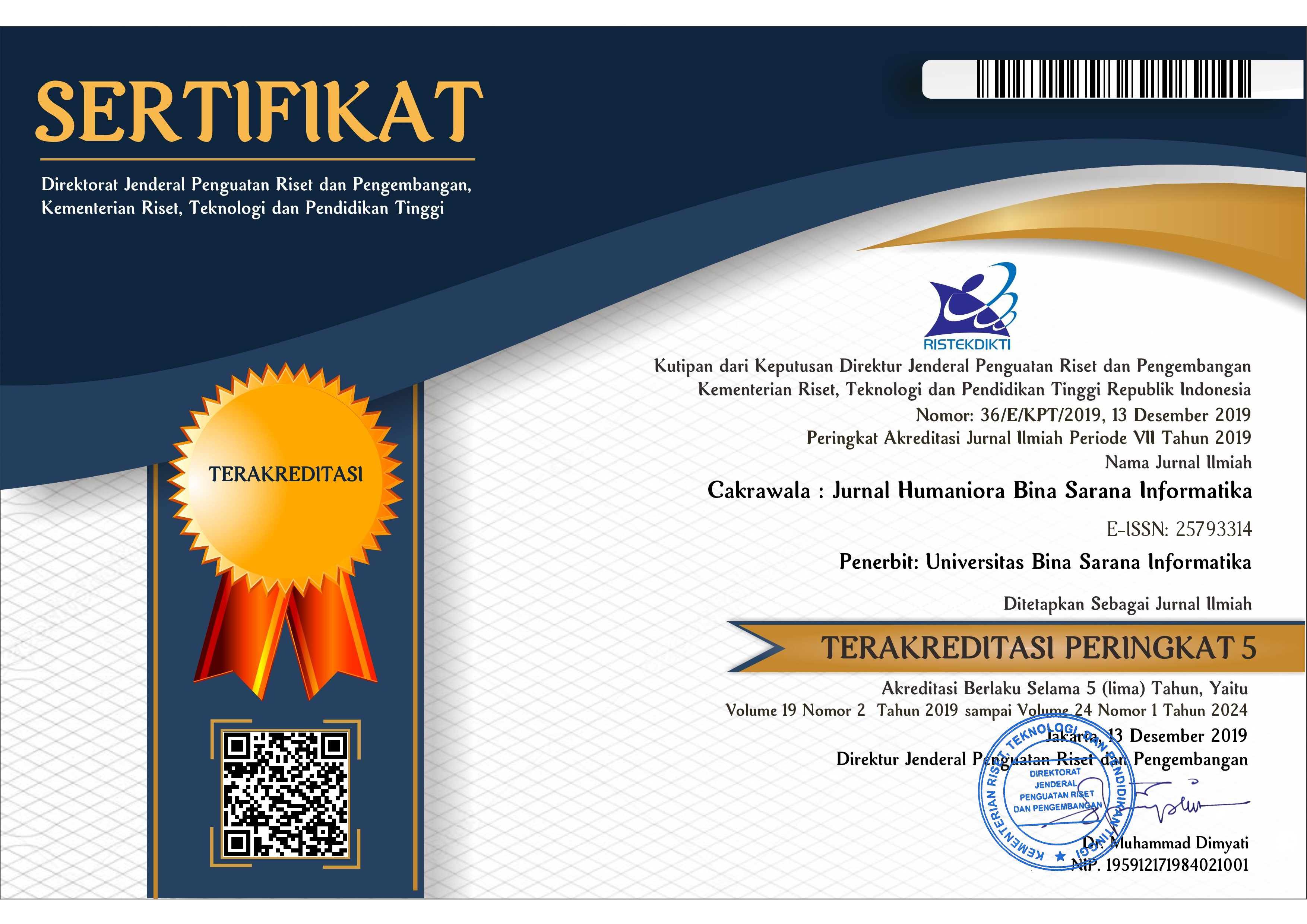Cancel Culture di Twitter: Etnografi Virtual Kasus Gofar Hilman dan Radio Prambors di Akun @Prambors
Abstract
Full Text:
PDFReferences
Aida, N., R., & Hardiyanto, S. (2022). Mengenal apa itu Twitter dan mengapa orang menggunakannya. Diakses dari https://www.kompas.com/tren/read/2022/03/24/200500665/mengenal-apa-itu-twitter-dan-mengapa-orang-menggunakannya?page=all.
Dholakia, U. Psychology Today (2020). What is cancel culture?
Denzim, Norman K., Yvonna S., & Lincoln (2009). Handbook of Qualitative. Research. 3rd. Thousand Oaks. Sage Publications. Inc.: California.
Henderson, R. Psychology Today (2019). 5 Reasons why people love cancel culture.
Juditha, C., (2015). Fenomena trending topic di Twitter: analisis wacana twit #savehajilulung. Jurnal Komunikasi dan Pembangunan. 16 (2), 138-154.
Koh, S. A. (2021). 'Cancel culture' and criminal justice.
Liedfray, T., Waani, F., & Lasut, J., (2022). Peran media sosial dalam mempererat interaksi antar keluarga di desa Esandom kecamatan Tombatu Timur kabupaten Minahasa Tenggara. Journal Ilmiah Society .2(1), 1-13.
Mardatila, A. (2021). Mengenal apa itu cancel culture dan kaitannya dengan baik dan buruk. Diunduh dari https://www.merdeka.com/sumut/mengenal-apa-itu-cancel-culture-dan-apakah-itu-baik-atau-buruk-kln.htmlhttps://www.merdeka.com/sumut/mengenal-apa-itu-cancel-culture-dan-apakah-itu-baik-atau-buruk-kln.html
Norris, P. (2021). Cancel culture: myth or reality?
Segal, E. Psychology Today (2021). Cancel culture and empathy: can they coexist?
Patton, & Quinn, M., (2002). Qualitative research and evaluation methods.
Prastiwi, M., (2022). Pakar Unair beri tips cegah cancel culture di media sosial. Diunduh dari https://www.kompas.com/edu/read/2022/02/19/063900171/pakar-unair-beri-tips-cegah-cancel-culture-di-media-sosial?page=all.
Putri, A., & Trilatifah, W. (2022). Pengaruh ‘Cancel Culture’ Gofar Hilman Terhadap Citra Prambors FM. Diakses dari https://analysis.netray.id/engaruh-cancel-culture-gofar-hilman-terhadap-citra-prambors-fm/
Toler, L., & Mind V., (2021). The mental health effects of cancel culture.
Waani, M. S., & Wempi, J. A. (2021). Cancel culture as a new social movement. American Journal of Humanities and Social Sciences Research, 5(7), 266–270.
Zulfikar, A. W., (2016). Cancel culture, the real power of social media. Diunduh dari http://www.psikogenesis.com/2021/10/cancel-culture-real-power-of-social.html
DOI: https://doi.org/10.31294/jc.v23i1.13848
ISSN: 2579-3314


Dipublikasikan oleh LPPM Universitas Bina Sarana Informatika
Jl. Kramat Raya No.98, Kwitang, Kec. Senen, Kota Jakarta Pusat, DKI Jakarta 10450

This work is licensed under a Creative Commons Attribution-ShareAlike 4.0 International License









